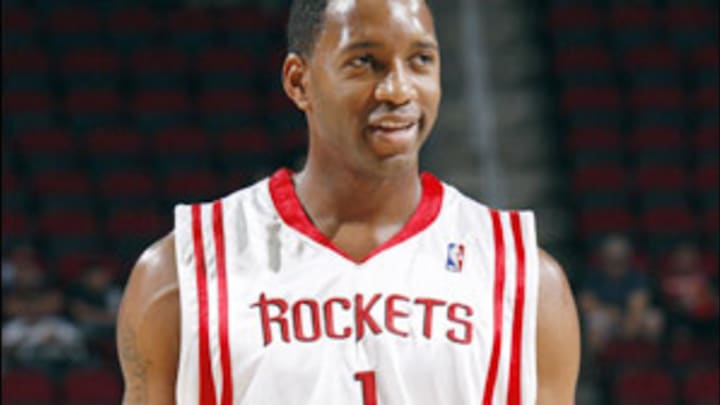Judging T-Mac

Winner is the most misapplied label in sports, its definition often changing depending on whom we are talking about and when we are talking about them.
Does it make you a winner if you have a specialized, yet relatively minor role that you fulfill on a winning team?
Can you be considered a winner if you do everything humanly possible to make your teammates better and your team successful, yet your team still doesn't win?
Which brings to mind Tracy McGrady of the Houston Rockets.
The Rockets are the hottest team in the NBA, having won 19 in a row, tying them for the third-longest steak in league history going into Wednesday's game at Atlanta.
McGrady, who is so versatile that he can't be pigeonholed into any specific position on the court, was playing great before center Yao Ming went down for the season with a stress fracture in his left foot when the streak was at 12. He's playing even better now, stepping up in every way imaginable.
McGrady is a seven-time All-Star and two-time scoring champion who has been a vital cog in getting three different franchises to the playoffs. He has been an All-NBA first-team selection twice, a second-team choice three times and a third-team pick once. His 28.8-point scoring average (in 32 career playoff games) is the fourth highest for all players with a minimum of 25 postseason games. He has also averaged 6.6 rebounds and 6.1 assists in those games, giving him overall numbers that compare favorably with some of the all-time greats (see chart, right).
Yet McGrady, 28, is defined by the simple fact that he has never made it out of the first round of the playoffs in six attempts. In the nebulous world of winners and losers, he will always be considered a loser until he at least makes it to the second round, and then, magically, he will be allowed into the winners' club. He knows it, we all know it and he accepts it.
But is it fair?
It certainly isn't if you take a close look at the person and the player. McGrady is judged, not for what he has done, but for what he hasn't been able to do. But in this contradictory world of sports, in which every imaginable individual statistic is used as a measuring stick, players are ultimately judged by what their team does.
So, in other words, had Rafer Alston or Shane Battier or Yao played better and the Rockets had advanced to the second round last season, then McGrady wouldn't be considered a loser any longer? What sense does that make? He's an unselfish player, a great teammate and an honorable, caring man who unfortunately has this cloud hanging over his legacy. Why must we always have to say, "Yeah, he's great, but until he wins a playoff series, he ain't that great"?
McGrady might have contributed to his plight with a naïve slip of the tongue during the 2003 playoffs, his fourth bid at winning a postseason series. After his eighth-seeded Orlando Magic took a 3-1 series lead against the top-seeded Detroit Pistons, a 23-year-old McGrady, when asked, talked about the possibility of finally winning a playoff series. His response to the hypothetical question was widely reported as if he had written off the Pistons prematurely. The Magic were blown out in the next three games and McGrady has been cast into infamy ever since.
But McGrady is no loser. He should be talked about in the same breath with Kobe Bryant and LeBron James, because skill-wise he is just as gifted, and neither of those two, Kevin Garnett, Chris Paul or anyone else is single-handedly doing more for his team than McGrady is for the Rockets.
This could be the year in which he will finally be considered a winner. He is certainly well on that path as the Rockets head toward the playoffs. But what if they falter yet again and fail to get out of the first round?
Will McGrady be thrown back onto the losers' heap?
Let's hope not. He deserves -- and has earned -- better.
